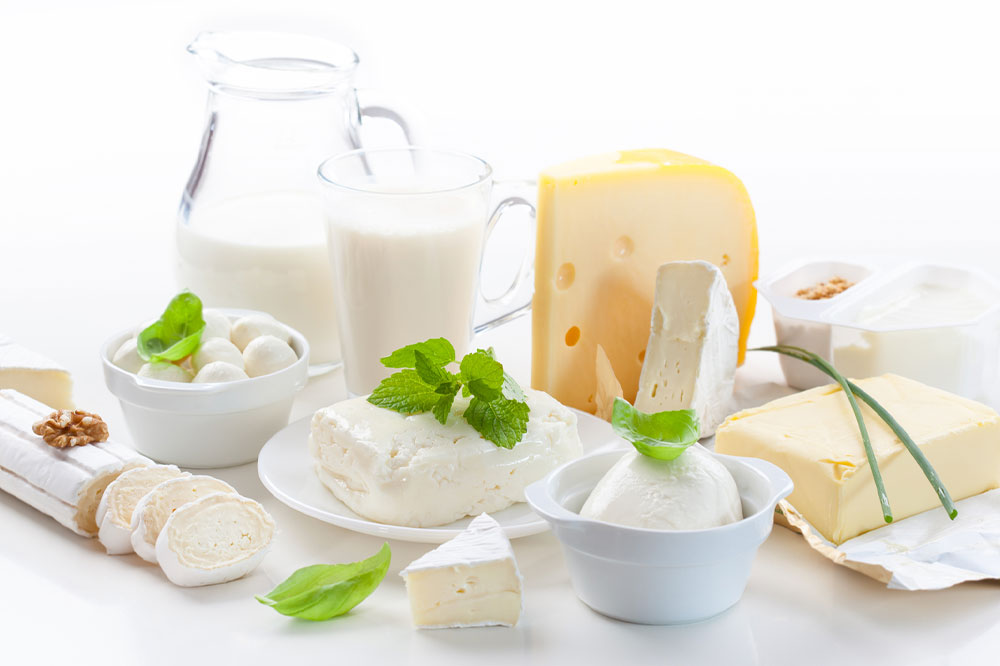
5 kinds of foods that can trigger eosinophilic esophagitis
Eosinophils are white blood cells that circulate in the blood and help the immune system fight diseases. An abnormally high count of these cells can trigger inflammation and affect other organs in the body. Eosinophilic esophagitis (EoE) is an allergic reaction where the inflammation affects the esophagus, forcing the passage to become constricted and develop rings or abnormal abscesses. One way to counter this reaction is to eliminate certain foods from the nutrition regimen.
Common discomforts of eosinophilic esophagitis
Patients may experience abdominal pain, vomiting, chest pain, or heartburn. This reaction can also make it difficult to swallow food. Food can get stuck in the esophagus due to inflammation and constricted passages if the symptoms are left unchecked.
Foods that trigger eosinophilic esophagitis
This kind of allergic reaction is caused by one of these common trigger foods:
Dairy products
Dairy products and ingredients derived from them can trigger or worsen the symptoms. This includes milk, condensed milk, buttermilk, artificial cream, margarine, cheese, ice cream, sour cream, and even some forms of mayonnaise. Casein, lactose, lactoglobulin, lactalbumin, milk powders, milk sugars, milk solids, and whey proteins commonly used in recipes are also potential triggers to eliminate or consume in moderation as per the doctor’s advice. Acceptable alternatives include milk derived from coconut hemp, rice, almonds, and dairy-free yogurts or cheeses.
Seafood
Common seafood options like shrimp, crab, lobster, oysters, clams, mussels, and scallops should be eliminated as far as possible. This includes fish used to prepare soup bases and stock for everyday recipes. These foods contain active allergens that aggravate the symptoms of eosinophilic esophagitis. One may switch to other animal-based proteins sourced from poultry, pork, or beef, depending on their choice.
Wheat and soy products
Any form of wheat that can trigger a gluten intolerance is considered bad for those with eosinophilic esophagitis. This includes bran, bulgur, couscous, farro, semolina, Kamut, and hydrolyzed ingredients derived from wheat for making commercial products. An allergic reaction from consuming these can result in permanent scarring of the esophagus or constriction of the already narrow passage. Tofu, tempeh, soya, bean curds, edamame, miso, and soy products are also unsuitable. Instead, patients may consider rice, oats, corn, quinoa, and acceptable refined soybean substitutes to avoid flare-ups.
Egg products
Eggs may be one of the best sources of protein and healthy omega-3 fatty acids. But this poultry option may not be suitable for regular consumption for those struggling with the condition. Egg yolks, egg whites, and eggs in their dried, powdered, or natural form should be eliminated from daily food plans as they are trigger foods for eosinophilic esophagitis. Children can develop a more severe egg allergy as their digestive system cannot easily break down the nutrients to be absorbed by the body. Plenty of substitutes work best in place of eggs, especially for everyday recipes.
Assorted nuts
Assorted nuts are a great source of essential B vitamins and nutrients the body needs for nourishment. However, walnuts, hazelnuts, almonds, cashews, pistachios, Brazil nuts, and any form of cold-pressed or hydrogenated nut extracts can trigger inflammatory allergic responses. Therefore, nuts feature among the list of foods that trigger eosinophilic esophagitis and should be eliminated from the nutrition plan.


